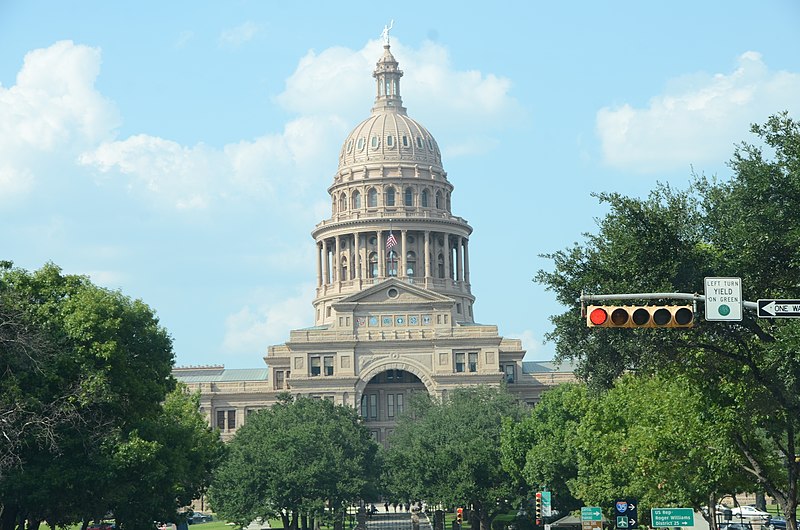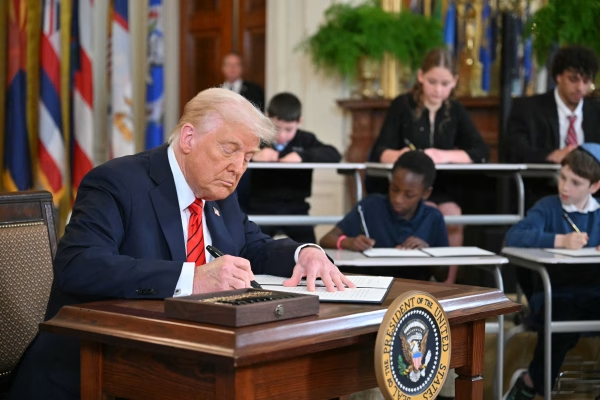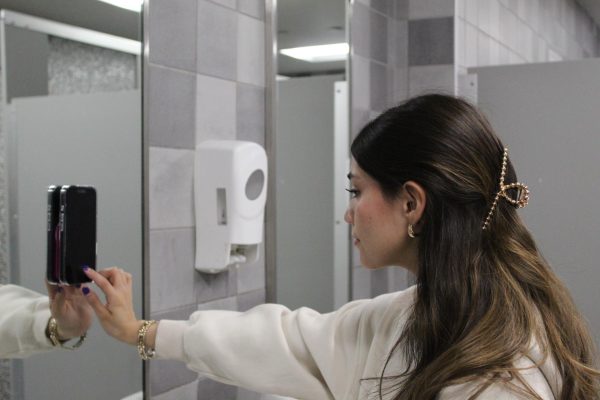Political responsibilities by position, explained
Photo courtesy / Wikimedia Commons
During early voting and the primary on March 3, Texas voters will be choosing the candidates to run for office from each party in the November general election. Depending on the position, the individuals elected in the general election will serve out their term locally, in Austin, or in Washington, DC.
There are different positions that individuals are running for in the 2020 March primary election. This is when both parties elect their candidate to run against the other party for each position. Some of the positions available include US and state representatives, US and state senators, the El Paso state board of education member, and the county sheriff.
Before electing a candidate, being familiar with their policies is critical. Important as well is awareness of what their responsibilities are.
US REPRESENTATIVES
The US representatives serve a two-year term for the people of a specific congressional district. Their job is to introduce the bills and resolutions, serve on committees, and offer amendments.
In order to be elected a representative, an individual must be at least 25 years old, have been a US citizen for at least seven years, and live in the state they will represent.
The number of US representatives was capped at 435 seats after the Reapportionment Act of 1929.
This year for the Democratic Party, there are six candidates running for the positions from Districts 16 and 23. There is only one candidate from District 16—Veronica Escobar—and five from District 23: Rosalinda Ramos Abuabara, Jaime Escuder, Gina Ortiz Jones, and Liz Wahl.
For the Republican Party, there are 11 candidates running. The six representing District 16 are Anthony Aguero, Jaime Arriola, Jr., Blanca Ortiz-Trout, Patrick Cigarruista, Irene Armendariz Jackson, and Samuel Williams. The last five candidates running to represent District 23 are Alma Arredondo-Lynch, Alia Ureste, Tony Gonzales, Raul Reyes, Jr., and Ben Van Winkle.
STATE REPRESENTATIVES
State representatives have similar jobs to US representatives, but there are key differences. A state representative is a politician who represents a local city or county and helps to create state laws that benefit its people.
To be a state representative, one must be a legal resident of that area and be between 21 and 67 years old. Most state representatives serve a four-year term, but it may vary. A state representative job is oftentimes a steppingstone to future positions at the federal level.
There are six Democratic candidates seeking the positions: Mary González from District 75, Elisa Tamayo and Claudia Ordaz Perez from District 76, Lina Ortega from District 77, Joe Moody from District 78, and Art Fierro from District 79.
From the Republican side, there is only one candidate, Jeffrey Lane from District 78.
US SENATOR
The other portion of congress is comprised of the senate, at both the state and federal levels.
The United States Senators are in charge of deciding the laws in the country. Senators only serve six years at a time and are elected by their state to represent them. They are in charge of representing every person in the country.
In order to be a senator, a candidate must be at least 30 years of age, have lived in the United States for at least nine years, and currently live in the state they represent during election time.
The Democratic candidates up for election are Chris Bell, Michael Cooper, Amanda K. Edwards, Jack Daniel Foster, Jr., Annie “Mamá” Garcia, Victor Hugo Harris, Mary “MJ” Hegar, Sema Hernandez, D.R. Hunter, Adrian Ocegueda, Cristina Tzintzún Ramirez, and Royce West.
The Republican candidates up for election are Virgil Bierschwale, John Cornyn, Dwayne Stovall, and Mark Yancey.
STATE SENATOR
While a United States senator is involved in passing laws that affect every person in the country, a state senator is strictly in charge of running the state and passing state laws. Senators’ jobs entail representing the people of the state at a higher level than a state representative.
In order to be a state senator, a candidate needs to have all the same qualifications as the United States senator. The term for the state senator varies in each state, and in Texas, senators serve for four years.
The candidate for the state senator for the Democratic Party is Cesar Blanco, and the candidate for the Republican Party is Bethany Hatch.
STATE BOARD OF EDUCATION MEMBER
The State Board of Education is responsible for setting and maintaining the standards and policies in Texas public schools. This includes setting the curriculum, reviewing teaching materials, overseeing the budget, and setting graduation standards.
The board is made up of members from a certain district, as each member is in control of an area of Texas. There are five meetings per year, and each meeting is held at the State Capitol in Austin.
Running for El Paso’s district seat in the local elections is Georgina Perez.
COUNTY SHERIFF
The job of the sheriff’s office is to provide law enforcement to the smaller areas outside of the urban center and support the local police departments if they need it. The sheriff’s office can apprehend suspects of crimes, patrol traffic areas of the city, and assist other law enforcement departments. Despite controlling a smaller force than the police department, the county sheriff is the most prominent police figure in the county.
El Paso’s current county sheriff is Richard Wiles. He is running for reelection against Raul Mendiola, Carlos Carrillo, and Ron Martin.
VOICING AN OPINION
Early voting is underway until Friday, Feb. 28. Election day will be held on Tuesday, March 3 in Texas. If needed, a run-off election will be on May 26. The chosen candidate from each party will then face each other in the November general election.
Voting in local, state, and federal elections is, as always, considered to be a civic duty.
“It is not only important for students who are 18 but for [every adult] to vote because you have to have a voice in our democracy, especially at the local level, because these are the policies that will affect us most directly,” Dual Credit history teacher Mr. Ruben Sandoval said.
To learn more about any candidate mentioned in this story, click on their name. For a full list of the positions on the ballot, visit this site. To find the nearest polling station, click here.

Anna Guerra is a senior, and this is her first year in newspaper. Her favorite part about newspaper is complaining to her teacher about school and learning...

Carlos Miranda is a senior who is new to newspaper, his favorite part of newspaper reporting what happens in the world around us and relaying it to the...

Madison Untersee is a senior, and this marks her second year as a newspaper writer. Her favorite part about newspaper is being able to communicate with...













